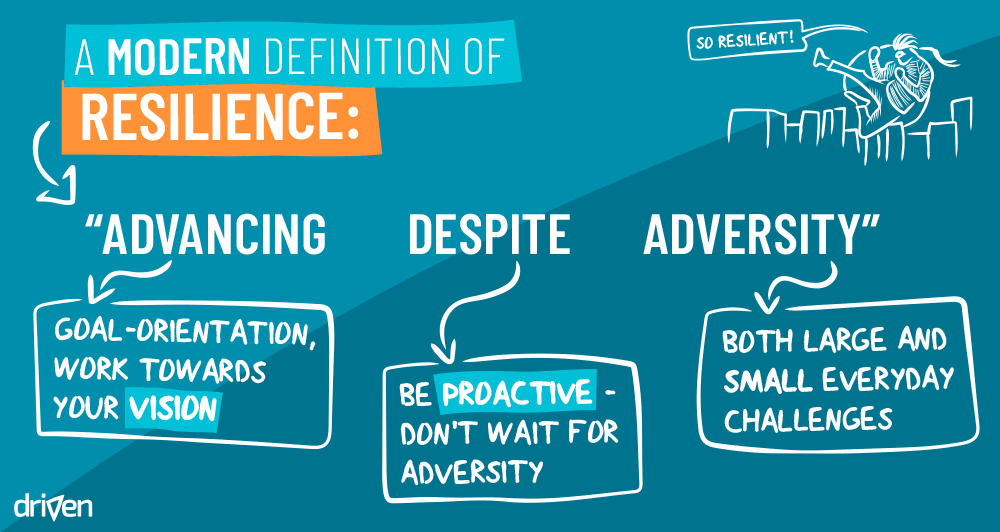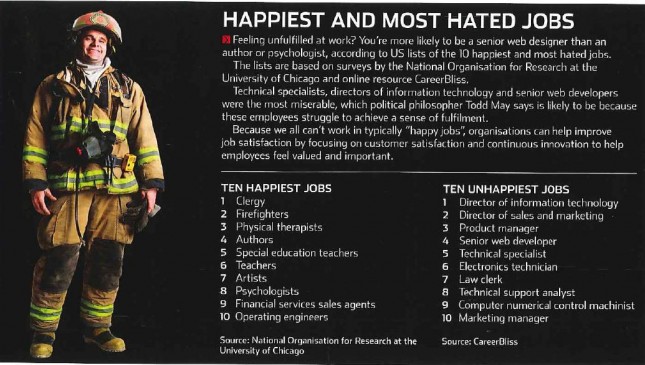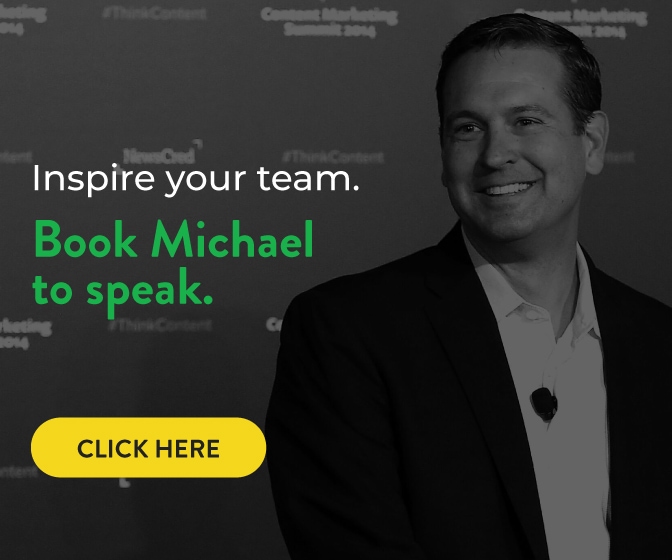How many people do you know who truly love their jobs and are happy at work? How many times have you come home from work and complained about your boss, a coworker, or a difficult customer? You might think the key to being happy at work is to change your boss or even to change your job. But it’s probably not.
Think back to all the times you’ve started a new job and been so keen to escape your old one. You start off enthusiastic and excited about your new role, and then as this enthusiasm starts to wear off, you often find that the annoyances of your old job are just the same as your new one. In other words, maybe it’s not your job that’s the problem – maybe it’s you.
As the old saying goes: Wherever you go, there you are. There’s no escaping how you feel or the thoughts in your head. Yes, it’s true, toxic workplaces do exist and they make it all that harder to be happy at work. But in many cases, true work satisfaction is within reach. It’s all just a case of reframing your situation.
Quick Takeaways
- Being happy at work isn’t down to the job you do, but about your own state of mind.
- Everyone can be happier at work by shifting to a more positive mindset.
- Being kind, improving your resilience, focusing on the good, and finding purpose in your work will make you and everyone around you happier.
Understanding the Science of Happiness
When I was researching Mean People Suck, I came across this article about Dr. Emiliana Simon-Thomas, a “happiness researcher” based out of UC Berkeley.
Simon-Thomas believes that everyone can maximize their potential for happiness at work by practicing four simple habits:
- Savor the good times.
- Find the purpose in your work.
- Improve your resilience.
- Practice kindness.
A survey run by the National Opinion Research Center based at the University of Chicago compiled a list of the top 12 jobs in which workers are most likely to report themselves as satisfied:
- Clergy
- Physical therapists
- Firefighters
- Education administrators
- Painter, sculptors, related
- Teachers
- Authors
- Psychologists
- Special education teachers
- Operating engineers
- Office supervisors
- Security and financial services salespersons
Looking at this list, there’s a strong correlation between the four “happiness habits” and the types of careers in which people feel satisfied. Members of the clergy, teachers, and psychologists must practice kindness as a key part of their roles. Authors, teachers, and physical therapists are sure to find purpose in their work. And resilience is certainly an important requirement to be a firefighter or even an office supervisor.
But the point is, what you do for work doesn’t matter. The idea is that whatever type of work to do and wherever you work, you can find happiness.
Finding the Good Times
The difference between optimists and pessimists is not their life experience. I’m sure you can think of people who persist with a “glass half empty” approach to life, despite having a loving family, regular income, and a comfortable home.
On the flip side, some people manage to stay positive despite what life throws at them.
The difference is that optimists see the good in every situation. If you look back at your career history, I’m sure you can remember some good aspects of a job you didn’t really enjoy. In many cases, we can enjoy spending time with the people we work with, even if other aspects of the job are less desirable.
By shifting your focus to appreciate the positives, it makes you see your whole situation in a better light, and your happiness levels naturally increase.
Finding Purpose in Your Work
Not everyone is driven by a clear purpose in their careers. If you’re a therapist helping severely disabled children to live a better quality of life or you’re a debt counselor saving people from bankruptcy, it’s easy to find purpose in your life. But what if you just work in an office making money for a giant corporation?
We all want to feel like the work we do is having some kind of impact on the world. This isn’t always obvious in the day-to-day grind of admin and office politics. But remember, whatever your job is, the work you do is important enough that someone is paying you to do it.
Maybe your purpose is delivering great customer experiences. Or maybe it’s sharing your knowledge with your coworkers to help them be better at their jobs.
Everyone can find purpose in their work. If you can’t, then it might be time to reassess if your career is making the most of your talents and experience.
Improve Your Resilience

Everyone has to put up with difficult situations at work from time to time. Whether this means working under a mean boss or dealing with tricky customers, building your mental resilience can make a big difference to how you feel at the end of the working day.
A big part of this is not taking things personally. Remember, your boss isn’t angry with you – she’s just trying to please her boss, and there may be other things going on in her life that you don’t know about. Employing empathy can be of great help here. Everyone has bad days (or weeks, or years!), and sometimes we take it out on others. As long as you’re secure in the knowledge that you’re doing a good job, the reactions of others can’t hurt you.
Be Kind
Above all, be kind! I think everyone would agree that the world would benefit from a little more kindness. Empathy is more than just being kind, but it’s a good start.
Kindness is a two-way process. If you’re kind to people, you’ll find they’re more open to what you have to say and more likely to do what you want. Treating others as you’d like to be treated yourself can go a long way.
So what do you think? Please consider picking up your copy of Mean People Suck today, and get the bonus visual companion guide as well. Or check out our services to help evolve your culture. And I would be thrilled to come present to your team on the power of empathy!



0 Comments